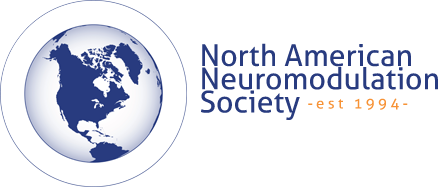Pinched Nerve Diagnosis and Treatments in Central New Jersey
Diagnosing a Pinched Nerve
In order to get the right treatment for your pinched nerve, you’ll need an accurate diagnosis. Our medical team will take you through a comprehensive workup that might include the following:
- Getting your medical history. Our doctors will want to know your current symptoms, previous treatments you’ve had for the symptoms, and what you are currently doing to mitigate the pain.
- A thorough physical examination. Your spine specialist will want to examine you for signs of any issues with your balance, pain, loss of sensation, weakness in your muscles, or any signs of spinal cord damage.
- Testing. This usually includes x-rays to rule out infections or tumors. Other imaging such as CT scans gives your spinal doctor a three-dimensional view of your spine and its structure.
Possible Solutions for Pinched Nerves
A pinched nerve should be treated as soon as possible. If neglected, compressed nerves can cause both temporary and long-term issues. Long-term damage could include a loss of sensation or weakness in some of your muscles. However, recovery from a pinched nerve is often achieved within a few days or weeks with rest and other conservative treatments. A spine specialist, like those at New Jersey’s Spine INA, can accurately diagnose a pinched nerve in the back or neck and help you find the right treatment for pain relief.
After receiving your diagnosis, your doctor will primarily focus on conservative treatment because most people respond to a combination of these options:
- Rest from activities that aggravate nerve compression
- Wearing a brace to immobilize the affected area
- Physical therapy to stretch and strengthen muscles in the affected area
- Medications or injections to help manage pain and reduce inflammation
If after a few weeks or months of conservative treatment your pinched nerve does not recover, it may be time to consider a least invasive surgical option provided by the team at Spine INA. The doctors here create an honest environment to ensure you fully understand all treatment available to you and can make an educated decision. The helpful and friendly staff will be with you every step of the way so that you can go back to doing the things you love.
If you’re struggling with neck or back pain, contact us today to find out if you have a pinched nerve.
Treatment Options for a Pinched Nerve
Non-Operative Treatment for Pinched Nerves
Your doctor will want to start with conservative treatments for your pinched nerve. These benefit most patients with pinched nerve symptoms. Conservative treatments include:
- Pain medication, including muscle relaxers, anti-inflammatories, and sometimes even narcotic painkillers.
- Alternating cold and hot compresses for the first twenty-four to forty-eight hours.
- Physical therapy to stretch, massage, and strengthen your back.
- Epidural steroid injections to reduce your inflammation and help your spine specialist pinpoint the exact location of your pinched nerve.
Least Invasive Endoscopic Procedure Options for Pinched Nerves
If you are still experiencing pinched nerve symptoms after attempting conservative treatments, then it may be time to consider a surgical option. The following procedures offer up to a 90% success rate in treating bulging discs and pinched nerves.
- Endoscopic Discectomy (transforaminal or interlaminar): Using an incision that’s only about a ¼ of an inch long, your spinal surgeon can access the spinal canal without damaging your muscles. Using a high-definition camera, your surgeon will locate the herniated disc and complete the procedure. Most patients are able to return to work within the week. Conscious sedation is used, eliminating the risk of general anesthesia, so you are comfortable and aware during the surgery.
- Endoscopic Laminotomy: Endoscopic Laminotomy is a least invasive procedure in which your surgeon will create an opening in the lamina above and below the spinal disc causing you trouble in order to relive compression.
- Endoscopic Foraminoplasty: Using local anesthesia, your surgeon will make a small, 1/4 inch incision in your back, near your pinched nerve. A tube will be inserted which will allow the surgeon to insert a camera to give a clear look at the issue causing your pain. The surgeon can use surgical instruments to correct the damaged portion of your spine.
What to Expect Following Treatment
Most patients are able to recover from a pinched nerve with a combination of rest and non-operative treatment options within a few days or weeks. However, if your doctor recommends a surgical option, like the endoscopic discectomy performed by the specialists at Spine INA, you can usually expect a short recovery time.
How Long Is Recovery After an Endoscopic Discectomy?
Patients undergoing an endoscopic discectomy can expect the entire procedure to last about an hour. There are no stitches, simply a band-aid placed over the incision area. Although there shouldn’t be a great deal of pain afterward, some patients report feeling:
- Muscle aches or soreness
- Some pain at the incision site
- Infrequent twinges of pain as the nerve regenerates
- Some drowsiness
Directly after the procedure, it takes about an hour to recover before you can go home. After just a few days, many patients feel well enough to return to work. However, you should always listen to your body and discuss symptoms with your doctor.








